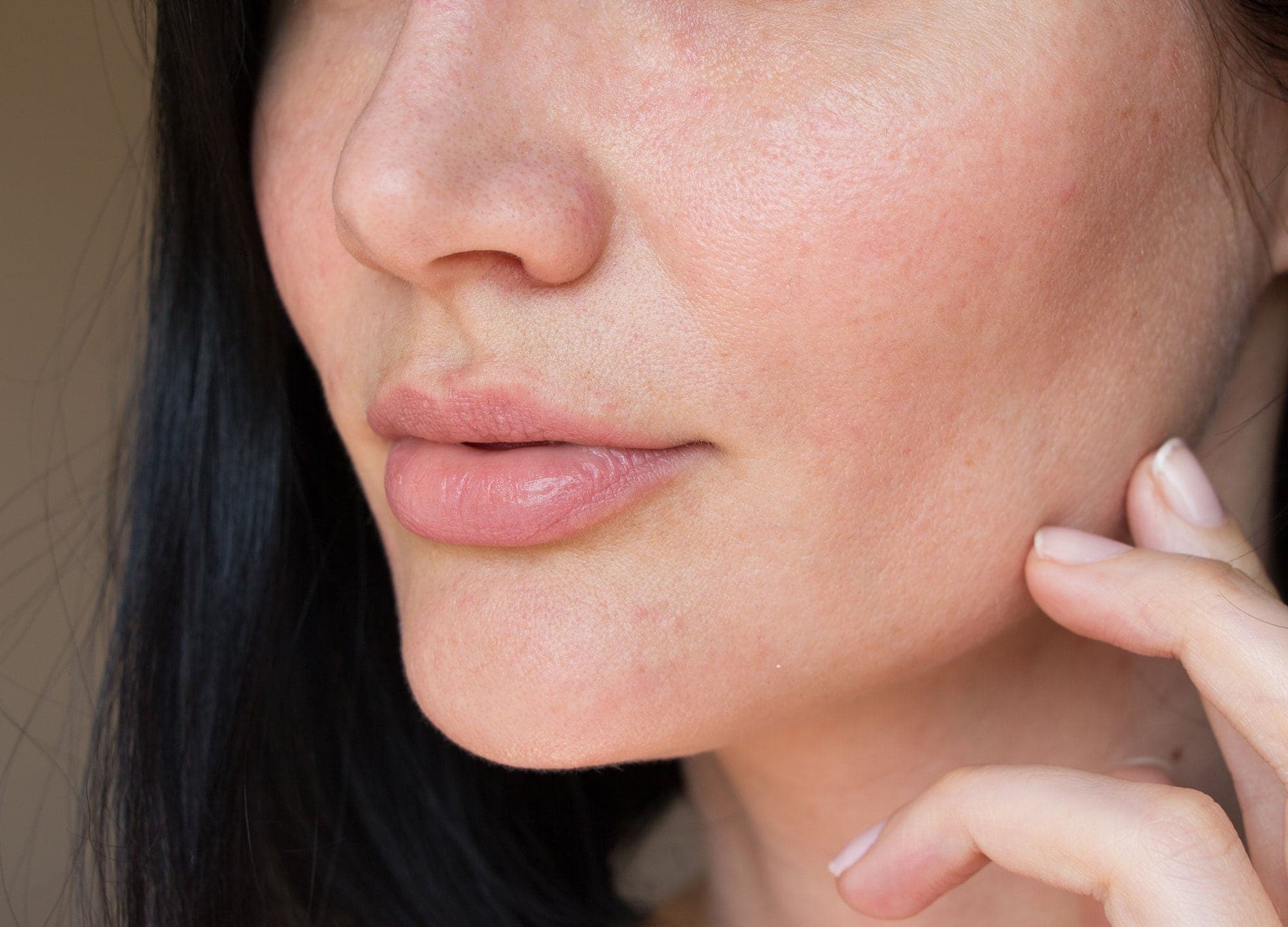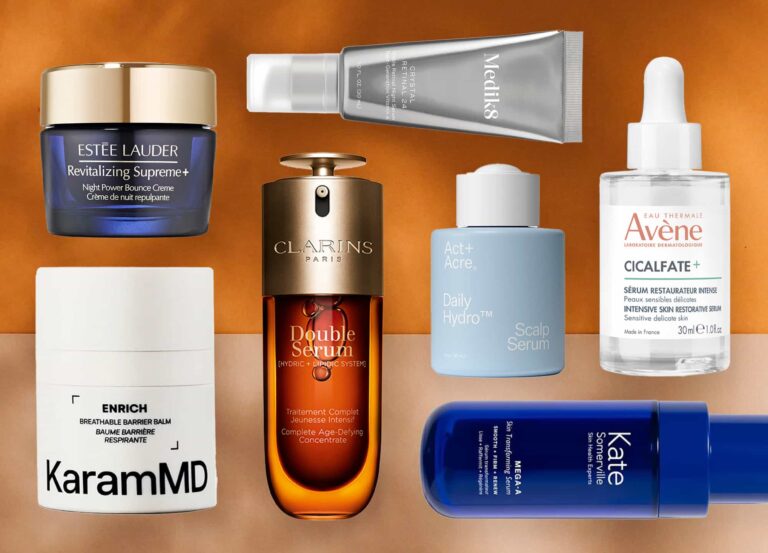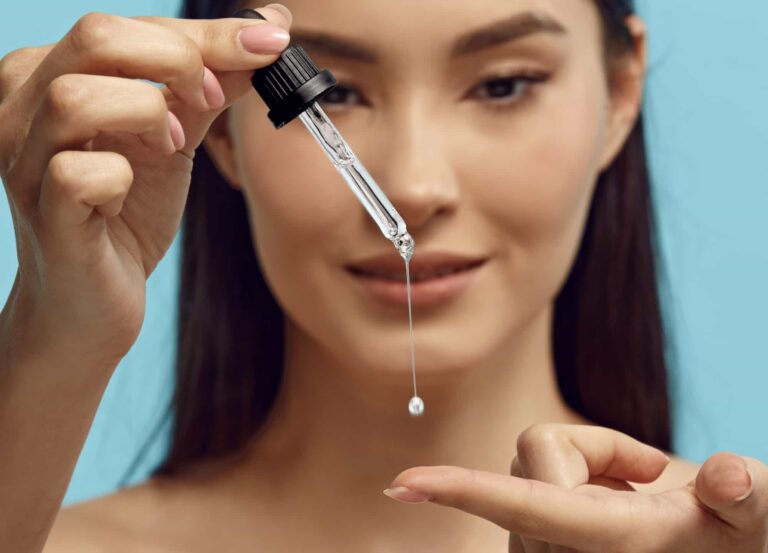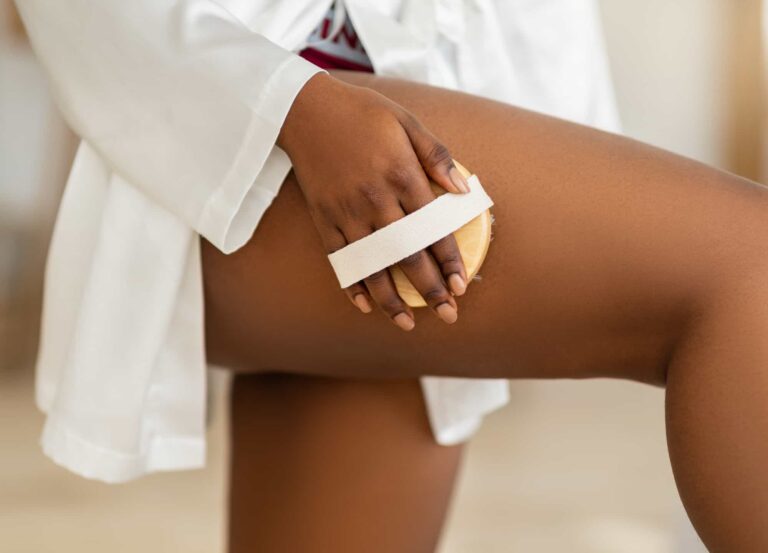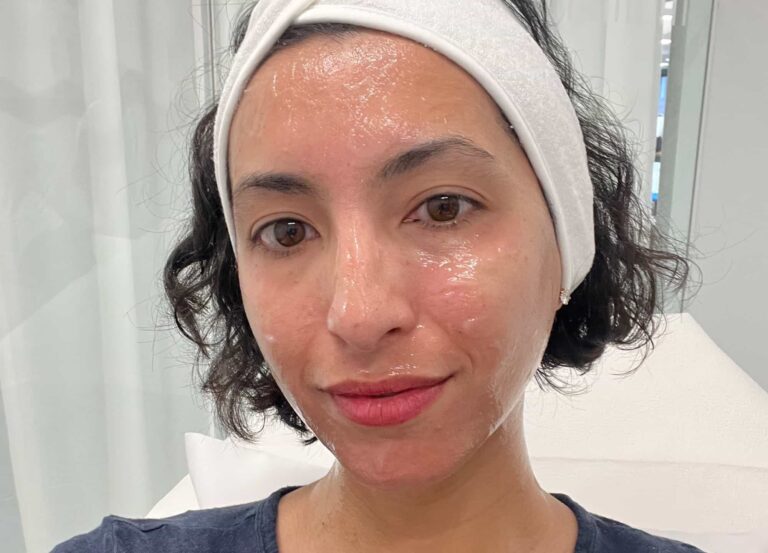Itchy, irritated, inflamed… Simply put, struggling with eczema is no walk in the park. When left untreated, eczema (and the many symptoms of eczema) can drastically hinder your comfort and quality of life. And according to the National Eczema Foundation, 10% of people in the U.S. will experience some form of this skin condition at one point in their lives.
However, there are many ways to help heal eczematous skin, ranging from lifestyle and dietary modifications to over-the-counter products, topical prescriptions, and lasers.
Below, two dermatologists clue us in on everything you need to know about treating eczema.
What is eczema, and what causes it?
While there are several types of eczema, like contact dermatitis and seborrheic dermatitis, the best known (and most common) is atopic dermatitis, also known as atopic eczema. Atopic eczema is “a skin condition that can leave skin red, swollen, dry, and itchy,” says Dr. Kristin M. Baird, a board-certified dermatologist in Longmont, Colorado. It may also manifest in the form of scaly patches. “Typically, eczema is caused by genetics or an overactive immune system and can be located anywhere on the body.” While the underlying cause of eczema is unclear, eczema flare-ups—during which its symptoms are most acute—can be triggered by environmental factors, like cold weather, and allergens found in some soaps, lotions, and even laundry detergents. “Eczema is often seen in people or families with asthma or seasonal rhinitis, such as hay fever and similar conditions,” adds Dr. Heidi Waldorf, a board-certified dermatologist in Nanuet, New York.
While Dr. Baird notes that it’s most common in young children, eczema flare-ups can be lifelong. It’s also possible to develop eczema at later stages in life.
Is there a way to treat eczema permanently?
Eczema won’t go away on its own. And, unfortunately, atopic dermatitis is a chronic immunomodulatory disease — which is why both derms note that there’s no one-and-done cure for eczema. Recurrences are common, and Dr. Waldorf notes that eczema may be better or worse at different times of life. Heads up: Since eczema can be confused with other conditions, such as psoriasis, it’s important to see your board-certified healthcare provider to get the right treatment plan for you.
However, there’s a range of dermatologist-approved treatment options and tips available to reduce itchiness and inflammation if you suffer from eczema.
How to treat eczema with skin-care products
So, what heals eczema quickly? Dr. Baird says that a topical steroid, such as hydrocortisone, is the OTC gold standard when it comes to treating affected areas. Additionally, she recommends looking for skin and body products with glycerin, hyaluronic acid, and ceramides. “These ingredients keep skin hydrated and hold in moisture, which leads to healthier skin,” she says.
Further, Dr. Waldorf suggests opting for moisturizers that contain colloidal oatmeal, which will reduce itchiness and replenish dry skin. And, she says, choose gentle cleansers—rather than harsh surfactants—“to keep the skin barrier healthy and intact and avoid stripping the important proteins and lipids that make up the brick and mortar of the skin.”
Just as important is what you don’t use, especially if you have sensitive skin as a result of eczema. “To prevent irritation, avoid skin-care products with added fragrances and dyes,” says Dr. Baird.
How to treat eczema with prescription treatments
If you’ve tried OTC products with the ingredients listed above and still can’t find relief, it may be time to consult a dermatologist for a prescription medication for moderate to severe eczema.
First, your dermatologist may prescribe a stronger topical treatment, like a more highly concentrated topical corticosteroid, than what you’d find in your local drugstore aisle. However, Dr. Baird warns that side effects may include itching, irritation, redness, skin thinning, and dryness, and it’s important to use the product exactly as directed. Plus, topical corticosteroids can mask signs of skin infections, so you’ll definitely want to stick to your follow-up appointments with your dermatologist while you’re taking these.
Next, both derms call out dupilumab (Dupixent) as a more advanced medical treatment to heal eczema. “It’s the first FDA-approved biologic treatment for moderate-to-severe atopic dermatitis in children and adults,” Dr. Baird explains. “This is recommended when symptoms cannot be managed by other topical prescriptions and skin care.”
She continues to say that dupilumab isn’t suitable for children under the age of six or people who have a history of eye problems. It also has side effects worth keeping a watchful eye on, such as allergic reactions, cold sores, and inflammation of the cornea. “Call your dermatologist if any of these symptoms are severe and do not go away,” Dr. Baird advises.
Another option dermatologists sometimes prescribe is phototherapy, or light therapy. If you haven’t had luck with topical treatments, this quick treatment (which may require multiple sessions) can help improve the itchiness and inflammation caused by eczema. The drawback is that because it works via UV exposure, it could cause sunburn, red and tender skin, signs of premature aging, and blisters.
What foods should you avoid if you have eczema?
While food allergies often go hand-in-hand with eczema, avoiding potential food allergens won’t necessarily make your eczema go away, according to the American Academy of Dermatology. (In fact, taking common food allergens like nuts, fish, and eggs out of your diet could actually do more harm than good in the long run, since you may miss out on certain nutrients.) Instead, since inflammation is a key player in eczema, research suggests that it’s better to focus on having a balanced diet rich in anti-inflammatory foods—think fruits and vegetables—instead of pro-inflammatory foods, which include red meat and those that are processed.
Are there any cosmetic treatments you should avoid if you have eczema?
You may be wondering if there are aesthetic treatments or procedures you should avoid if you have active eczema. After all, standard flare-ups are uncomfortable enough—you don’t want to add further complications to the already irritated mix.
“We don’t do aesthetic treatments—injectables, energy-based devices or other procedures— directly on or through disrupted, inflamed skin because of the risk of infection,” Dr. Waldorf shares. Naturally, the same goes for surgical procedures in inflamed areas.
Essentially, anything that will further disrupt the skin barrier on or near active eczema is a no-go. However, if the treatment you’re seeking is in a different area from the one being treated, she says that your physician should thoroughly evaluate that area to ensure that no sign of infection is present before proceeding.
Dr. Waldorf goes on to say people with a history of atopic dermatitis are more likely to carry certain bacteria, such as staphylococcus, in their nose. While pretreating and cultures aren’t necessary if there’s no sign of infection, “if a patient isn’t healing as expected after a peel or resurfacing procedure, it’s advisable to culture both the site of treatment and inside the nose, to rule out bacteria,” she explains. In this case, she says that topical mupirocin ointment or an oral antibiotic would be appropriate follow-up treatments.
8 dermatologist-approved tips to help treat eczema
In addition to the different eczema treatments outlined above, Dr. Baird says these eight simple tips can help reduce irritation.
- Avoid foods to which you’re sensitive or that provoke an inflammatory response.
- Adhere to a consistent skin-care routine as advised by a board-certified dermatologist.
- Take lukewarm (not hot) baths and showers.
- Pat (don’t rub) yourself dry after bathing.
- Apply a moisturizing cream or ointment directly after bathing or washing your hands, to seal in moisture.
- Invest in a humidifier, to avoid further drying out your skin.
- Drink at least eight glasses of water daily, to maintain adequate hydration.
- Resist the urge to scratch itchy skin, which will only inflame the area further and make it take longer to heal.







